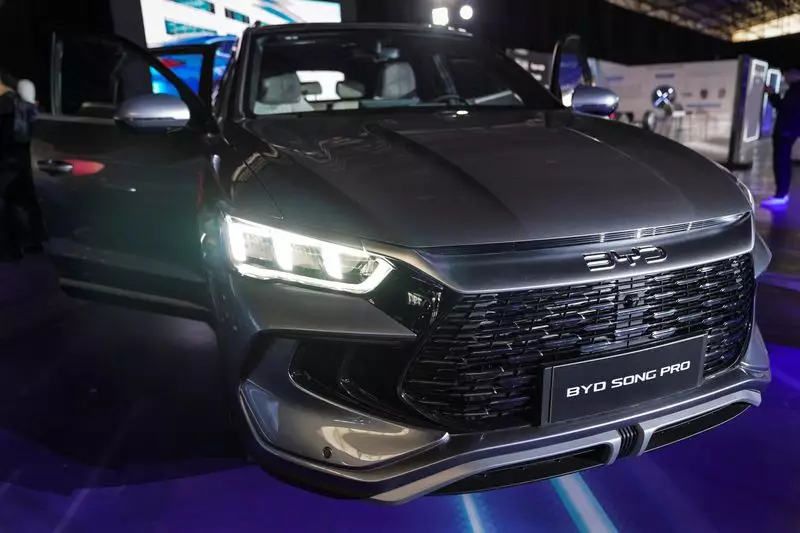In an era where electric vehicles (EVs) are not just alternatives but rather the future of transportation, Chinese automotive giants like BYD are making significant strides outside their home turf. With an eye towards expansion, BYD is narrowing its options for establishing a manufacturing plant in Mexico to three states. The motivations behind these efforts are complex and multifaceted, reflecting not just corporate goals, but also local and international economic dynamics.
Jorge Vallejo, BYD’s Mexico director general, indicated that the company is currently evaluating a variety of incentives proposed by these states. These incentives, which include fiscal benefits, land acquisition assistance, management support, and preferential pricing, are crucial for a company that seeks to optimize operational costs while enhancing its production capacity. As Vallejo elaborates, the location of a manufacturing plant transcends mere spatial considerations; logistical factors such as urban infrastructure, water supply, and energy access play vital roles.
The emphasis on logistics underscores a strategic approach where effective supply chain management and a robust support ecosystem will be key to operational success. Vallejo’s insights reflect a deep understanding of the complexities involved in automotive manufacturing, where even the minutest details can significantly impact productivity and efficiency.
The Mexican government, meanwhile, finds itself in a challenging position regarding its relationship with Chinese automakers, particularly under pressure from the United States. Previous reports have suggested that Mexico is hesitant to provide substantial incentives to Chinese companies looking to invest in EV production. This stance reveals a delicate balancing act that the federal government must navigate, especially in light of increasing geopolitical tensions and trade considerations.
The complexity increases when one considers the automotive landscape across Mexico, where U.S.-based companies have established a significant presence. The reluctance to engage with Chinese automakers could inadvertently affect the growth prospects of the automotive sector as a whole if BYD’s investments are sidelined in favor of more familiar international players.
Without disclosing the particular states in contention, BYD is focusing on three regions that have already demonstrated their viability as automotive hubs. The northern state of Nuevo Leon, which is on the cusp of becoming the site for Tesla’s mega-factory, is emerging as a significant player in the electric vehicle sector. It serves as an attractive destination for companies looking to capitalize on an established supply chain and workforce.
On the other hand, the central state of Puebla, known for housing major brands like Volkswagen, highlights Mexico’s strong automotive manufacturing legacy. This established presence could provide BYD with not only the infrastructure but also a skilled labor pool necessary for high-tech EV production.
Looking ahead, BYD has articulated plans to produce a total of 150,000 units in the initial phase, eventually ramping up to an impressive annual capacity of 400,000 to 500,000 units. This bold ambition underlines the company’s commitment to becoming a major player in the Mexican automotive landscape. Interestingly, BYD’s focus appears predominantly to be on serving the Mexican market rather than eyeing immediate expansion into the U.S. This decision could reflect a strategic choice, opting to solidify its foothold in Mexico before navigating the complexities of the U.S. automotive environment.
The recent launch of BYD’s Song Pro plug-in hybrid SUV in Mexico represents not just a product introduction but a signal of the company’s intent to bridge the transition from fossil fuels to electric solutions. A competitive pricing strategy, with the SUV positioned at approximately $31,146, could enhance its market accessibility and appeal.
BYD’s efforts to establish a manufacturing plant in Mexico symbolize not only a strategic business move but also a reflection of the evolving global automotive landscape. As they move forward with negotiations and site selection, their success hinges on navigating regulatory complexities, maximizing local partnerships, and positioning themselves effectively amid fierce competition. The coming months will be indicative of how BYD plans to etch its name into the vibrant tapestry of Mexico’s automotive future.

